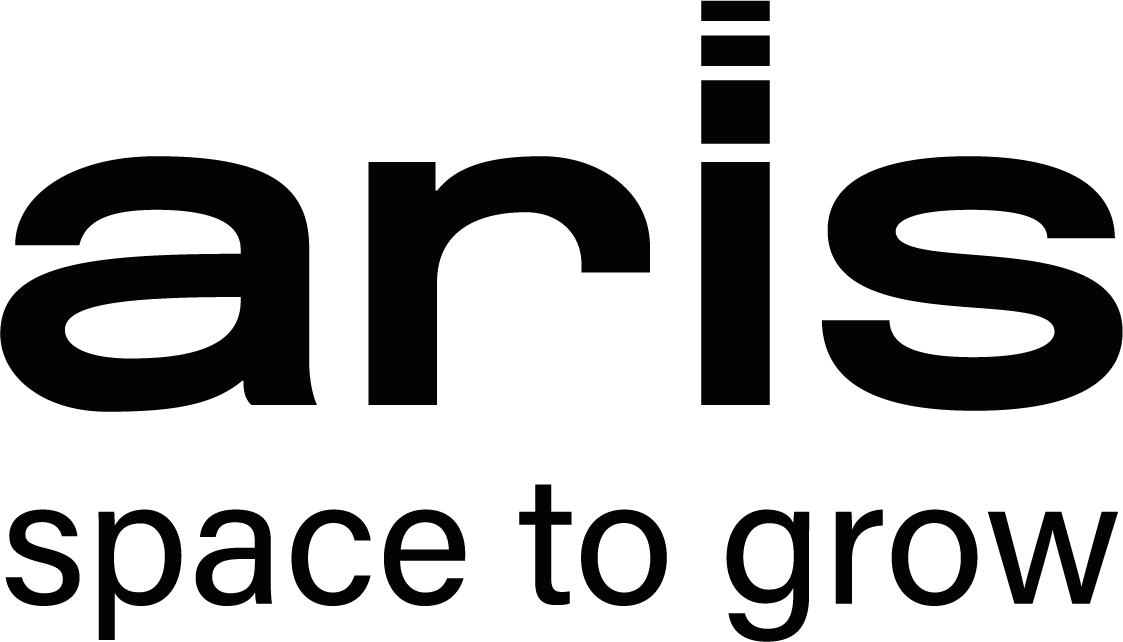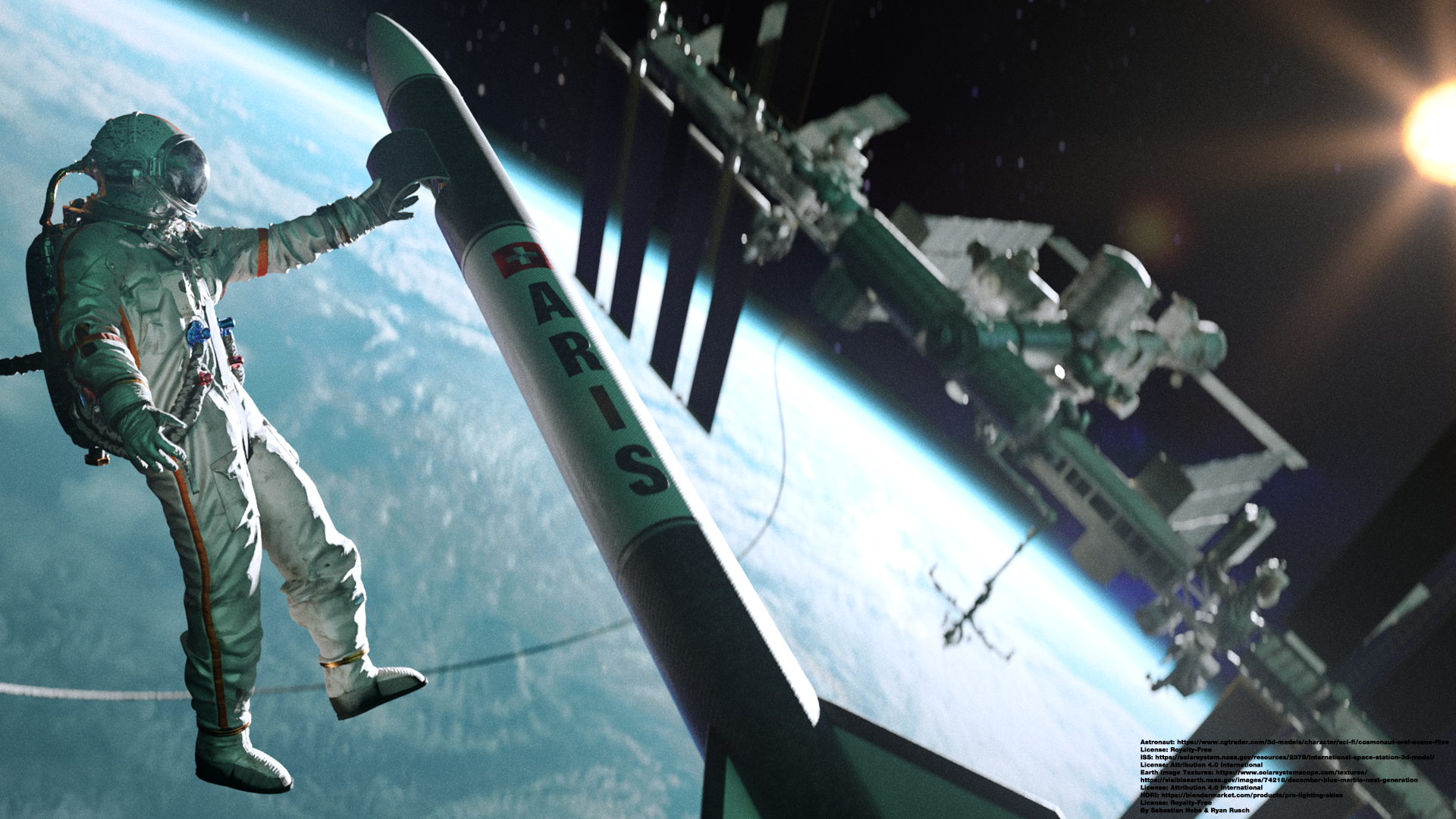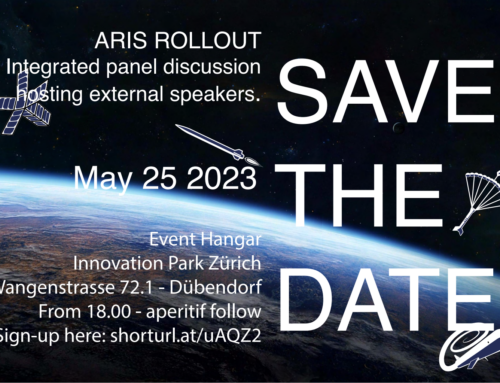Founded in 2017 by students from ETH Zurich, ARIS until today involves more than 300 engineers, scientists and managers devising, building, and testing sounding rockets, rocket engines, CubeSats and autonomous underwater vehicles. The founding members – inspired by the many American university teams competing in building sounding rockets – set a clear goal for our association: to fly a fully student-researched-and-developed rocket, integrating an advanced rocket structure, a competitive hybrid rocket engine and a novel guided recovery system at Spaceport America Cup before the mid 2020s. The team defined a detailed timeline for the first five years of the association paving the way towards this ambitious goal. We are proud to report that the association is on track of achieving this milestone.

At the association’s initiation, however, we made clear that for us this will only be the first milestone on our journey to space: until the end of the decade, we want to fly a student demonstrator to space. This broader approach to space science and engineering is also reflected in our 2021/2022 project portfolio, with our members for the first time working on liquid engines, CubeSats as well as autonomous underwater vehicles. As an association “from students for students” we will continue fostering ambitious goal setting and following up on these goals, true to our key values “Inspire. Engage. Build.”
On track with our 2024 goal, it is the time to set a focus for what will come after having reached this milestone. The ARIS Board is eager to share its roadmap for the coming decade of our association with our partners and friends.
Our goal is clear: ARIS wants to bring an experimental payload to orbit on an in-house developed rocket by the 2030s. To that end, the ARIS Board identified three intermediate milestones:

- 2024: Launch a CubeSat Experiment on a ride-share mission.
- 2024: Launch a rocket to 100’000 feet propelled by a liquid engine.
- 2026: Launch a sounding rocket to the Karman line at 100km.
Undoubtedly, the targeted timeline is ambitious – especially if tackled within the scope of a student organisation. It will require further workflow improvements on all levels of our organisation – from HR to management, from IT to testing procedures, from documentation to securing funding. However, it is also a goal that builds up on all the technical and organisational expertise we acquired until today. Requiring contributions from all our projects it shall also serve as the main driving force of progress within our association. And most importantly, it is a roadmap that all ARIS members can associate with.




Social Contact